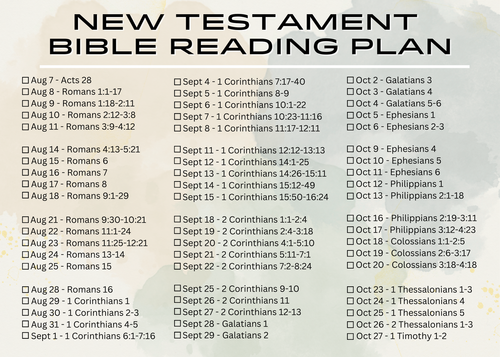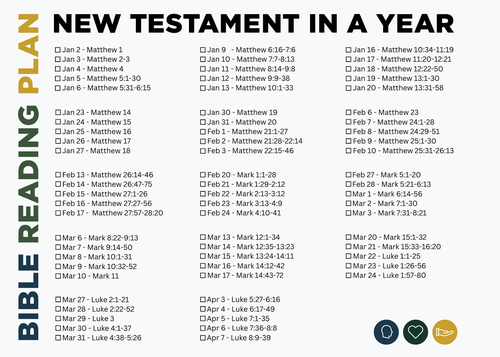The Destroyer And Demons
1 Corinthians 10:1-22
Paul presents a compelling argument (9:26-27) for his previous statement: Israel lacked self-discipline during their journey in the wilderness, resulting in disqualification for most of them. In 10:1-4, Paul emphasizes the delivery of all Israelites from Egypt by using the word "all" five times, highlighting God's provision of food and drink in the wilderness. Despite their impressive spiritual history, the Israelites sinned gravely, displeasing God, who punished most of them. Only Caleb and Joshua survived (Num. 14:24-35). The implication is clear: although the Corinthian Christians have experienced redemption, baptism, and the Lord's Supper, they must remain vigilant to avoid disqualification.
In the wilderness, God supernaturally supplied food and drink to Israel. Paul mentions a spiritual Rock that he identifies as Christ. In the Old Testament, God is metaphorically referred to as the Rock (e.g., Deuteronomy 32:4, 15, 30-31; Psalms 78; 95), and Paul clarifies that the Rock of Israel was the preexistent Christ. He was present with them in the wilderness, providing sustenance and punishing those who tested Him.
Paul lists four prohibitions: idolatry, immoral sex, testing Christ, and grumbling. These sins have the potential to disqualify individuals from the race. Christians can learn from Israel's negative example in the wilderness. Each command consists of three elements:
Paul presents two reasons why individuals are responsible if they stumble (see verse 12):
Paul revisits the topic of consuming food offered to idols, but there are differences between chapters eight and 10:14-22. In chapter 8, Paul addresses the matter concerning conscience, whereas here he discusses it with idol worship. While Christians may have differing opinions on matters of conscience, they cannot disagree on the worship of idols. Paul uses three ceremonies to illustrate: the Passover meal with the third cup of blessing, sacrificial meals, and pagan sacrifices to their gods (which are actually sacrifices to demons). When a church observes the Lord's Supper, it participates or shares in Jesus' death by communing with Him through a covenant renewal ceremony. The church nourishes itself spiritually by rejoicing in what Jesus has accomplished for His people through His death and the resulting blessings.
In the wilderness, God supernaturally supplied food and drink to Israel. Paul mentions a spiritual Rock that he identifies as Christ. In the Old Testament, God is metaphorically referred to as the Rock (e.g., Deuteronomy 32:4, 15, 30-31; Psalms 78; 95), and Paul clarifies that the Rock of Israel was the preexistent Christ. He was present with them in the wilderness, providing sustenance and punishing those who tested Him.
Paul lists four prohibitions: idolatry, immoral sex, testing Christ, and grumbling. These sins have the potential to disqualify individuals from the race. Christians can learn from Israel's negative example in the wilderness. Each command consists of three elements:
- The command itself.
- A comparison to what some did.
- Either scriptural support or the consequences of the sin.
Paul presents two reasons why individuals are responsible if they stumble (see verse 12):
- Every temptation we face to stray is universal among humanity, such as idolatry, immoral behavior, testing Christ, and complaining.
- "God is faithful." If we fall, we cannot hold God accountable. The issue lies within ourselves. God will not permit us to be tempted beyond our capabilities and will provide an escape route for every temptation, enabling us to endure it.
Paul revisits the topic of consuming food offered to idols, but there are differences between chapters eight and 10:14-22. In chapter 8, Paul addresses the matter concerning conscience, whereas here he discusses it with idol worship. While Christians may have differing opinions on matters of conscience, they cannot disagree on the worship of idols. Paul uses three ceremonies to illustrate: the Passover meal with the third cup of blessing, sacrificial meals, and pagan sacrifices to their gods (which are actually sacrifices to demons). When a church observes the Lord's Supper, it participates or shares in Jesus' death by communing with Him through a covenant renewal ceremony. The church nourishes itself spiritually by rejoicing in what Jesus has accomplished for His people through His death and the resulting blessings.





Recent
Archive
2023
January
Happy New Year!He Will Save His People From Their SinsMy Beloved SonTemptation And MinistryThe SermonLeaving, Lying, Limits, Love, Largesse, and The Lord's PrayerTreasure, Anxiety, and JudgmentAstonishing AuthorityStorms, Demons, and HealingJesus Is CompassionateHis Eye Is On The SparrowSwords, Rewards, and MessengersThe Lord of the SabbathBlasphemy, Bad Trees, Signs, and FamilyStories, Sowers, and SoilsParables, Hidden Treasure, and RejectionFame, Food, Fear, Faith, and FringeReal Issues And The Power Of GodDying To Find LifeLike The SunChildren, Temptation, Sheep, And ForgivenessMarriage, Kids, And MoneyTo Serve And Give His Life
February
The ArrivalStories That StingQuestion TrapsHidden Motives And LamentThe End...?UnexpectedReady?Punishment, The Plot, And PerfumeTreachery, Passover, and The CupBetrayal, Injustice, And DenialThe Field Of Blood And The GovernorCrucifixion And DeathAll AuthorityMark—The Beginning Of The GospelHealing, Preaching, And The Forgiveness Of SinEating With Tax Collectors, Fasting, The Sabbath, And An Escape BoatThe Twelve, Blasphemy, Family, And A ParableParables And PowerA Different Kind Of StormPower Had Gone Out
March
Death, Hunger, And MiraclesCommandment Or TraditionDo You Not Yet Understand?The Christ And A Glimpse Of His GloryUnbelief, Confusion, And SinDivorce, Children, And PossessionsTo Give His Life As A RansomHosannaThe Rejected Stone, Taxes, And The Great CommandmentDestruction And The EndNo One Knows, An Anointing, And A Promise To BetrayPassover And GethsemaneThe Kiss, Arrest, And DenialPilate, Simon, And The CrucifixionDeath, Burial, Resurrection, And What\'s NextTheophilus And A Visit From GabrielMary And The MagnificatBenedictusThe Arrival And The ShepherdsSimeon, Anna, And The SpiritFruits Keeping With Repentance And BaptismThe Wilderness, Nazareth, And CapernaumSimon's Mother-In-Law, Fishing, A Leper, And Sins
April
Tax Collectors, Fasting, Sabbath Controversies, And The TwelveWhy Do You Call Me Lord, Lord?Jesus Marveled, A Raised Son, And QuestionsA Sinful Woman And A ParableObeying The Word, A Storm, And DemonsTwelve Years, Twelve Apostles, And SpeculationGreater, Costly, And GloryNot Getting It, The Cost, And AppointedWoes, Neighbors, And What Is NecessaryHelp Us Pray And A Divided Kingdom?Signs, Lights, And WoesHypocrisy, Fear, A Fool, And AnxietyParables, Division, And The TimesWarnings, A Daughter Of Abraham, And Jerusalem, JerusalemA Son Or An Ox, Parties, And DiscipleshipLost ThingsThe Dishonest Manager, The Law, And Anguish In This FlameMillstones And Mustard SeedsPersistent Prayer, Humility, A Childlike Faith, And The Rich RulerEverything That Is Written, A Blind Beggar, And A Wee Little Man
May
A Parable, A Colt, A Prophecy, And A CleansingAuthority, Wicked Tenants, And TaxesThings To Beware Of And WidowsDestruction, Persecution, The Son Of Man, And WatchingThe Plot, Betrayal, Lord's Supper, And Inappropriate BehaviorPrediction, Fulfillment, Agony, Betrayal, And DenialMistreated, Taken Before The Council, Pilate, Herod, And Delivered To Be CrucifiedCrucifixion, Death, And BurialHe Is Not HereDisbelieved For JoyIn The Beginning…The Lamb Of God And A WeddingZeal, What's Inside, And Born AgainHe Must Increase
Categories
no categories
Tags
no tags
